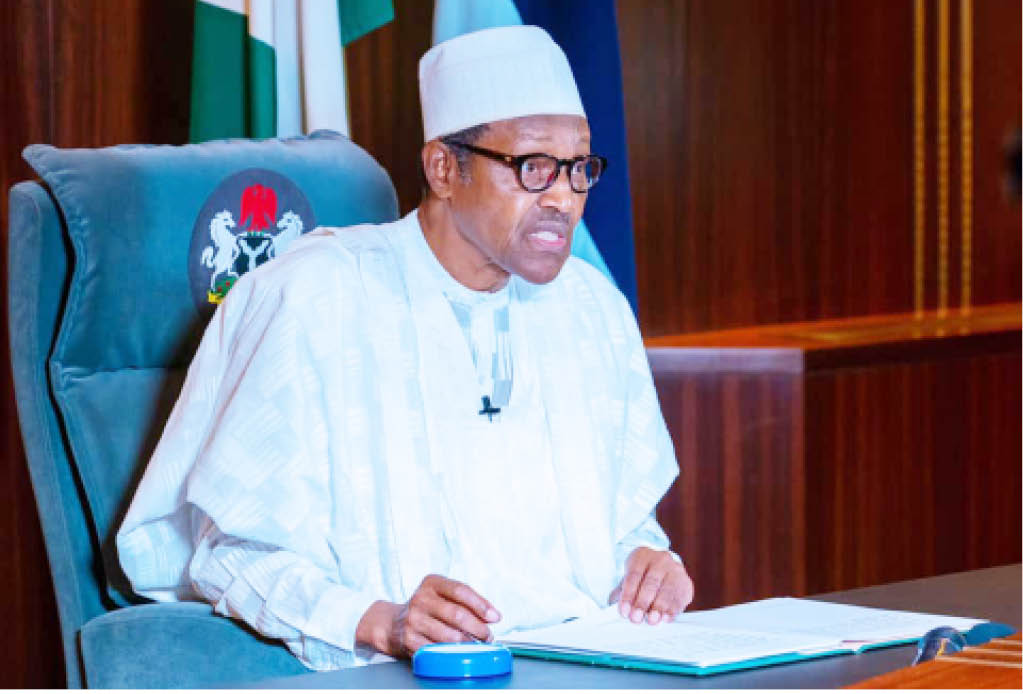By a winning communication strategy for Nigeria leader Muhammadu Buhari, I do not mean one that will project his government and its policies in a dynamic, productive way. Every leader aims at that.
By this phrase, I mean a robust strategy that is the size of Nigeria: one that is bigger than Buhari himself, and his government, and can set the tone for the future.
The question is whether President Buhari is humble enough to identify the need for such an approach. To be sure, he has advertised and positioned himself as Nigeria’s harbinger of change, and he has been so welcomed by the Nigerian people. His outlook is also good news to our neighbors in West Africa, as was demonstrated by the amazing reception he was given in Cameroon last week, as well as throughout Africa.
As presidential candidate and as President, Buhari has carried himself with the dignity that a Nigerian leader should, and spoken with a confident sense of mission.
Now that he is in the garden of change, nurturing its soil and planting its seeds, I invite him to multiply his intended harvest and make his prospects and gains not only bigger than himself, but impenetrable to any negative or unpatriotic elements that may arrive after him. It is when a leader implements policies that are bigger than himself, and even contrary to his nature, that he becomes a statesman.
All Buhari has to do is to communicate to Nigeria his journey, including his shortcomings and mistakes, in full and as routine, making the flags of transparency and accountability an ally rather than a burden. If he accepts this principle, he would set a standard so high it would be non-retractable in four years, and virtually impossible for anyone to diminish in the future.
In the end, the most significant impact of this communication strategy is that it would help Buhari to attract and nourish leaders of vast potential and character.
How would it work? His government should report to the nation on a continuous basis, not in occasional announcements, concerning policy and policy implementation.
If we accept the premise that the purpose of government is that it serves the people, the objective of this strategy would be to help the government to show the people how it is doing that.
Under this strategy, President Buhari would report periodically to the nation in scheduled addresses, as well as on other occasions, on specific developments or issues. On some of those occasions or events, he would make himself available for questions from the mass media or the public.
But it is the second rung of this proposal that is the more important: that his spokespersons appear before the press in scheduled media briefings throughout the work week and on special occasions that are broadcast on live television and streamed to the Internet.
In addition, whenever there are burning issues and controversies, as well as after cabinet meetings, they should be joined at the briefing by the Minister of Information and other officials immediately relevant to the issues. The objective would be to brief journalists and answer questions from them, as well as from Nigerians participating in an open form on social media.
This means that in place of the current regime of the occasional news story (where the story is pre-written in place of press statements), Buhari’s government would be continuously and rigorously updating the public about its performance, and giving anyone who is interested the opportunity to challenge its work or its reporting.
If transparently pursued, an approach of this nature would influence every level of governance and every public institution even without the President formally asking for it.
A strategy such as this is the best ally that a government which wants to err on the side of the people can have. It is also important in a country which is forgetful, or pretends to be. Any government, and a compromised mass media, can claim to be transparent, but this communication schema brings the public into the democratic process in between elections, and makes true performance a real factor during elections.
This strategy would enable the public to identify patriotic Nigerians with actual leadership potential; people who will grow as they report on their missions and challenges over time. When it comes time to choose new leaders, the public will resist being sold idiots just because they have powerful godfathers.
In the past, we have also had government leaders who had very little input into the budgeting process, as long as the document was sufficiently padded for his individual benefit. As a result, such leaders spent the year that followed in perfect ignorance of the budget they were implementing. Add to that the fact that nobody was interested in putting in a reporting shift of any kind, and it is easy to explain why the country is dotted with uncompleted and never-intended-for-completion projects.
What is even more annoying is that Nigerian citizens often knew about each of those projects that were supposedly meant for their communities in federal budgets, but which never arrived, although the funds were collected by Ministers, governors and contractors.
Here is a chance for Buhari to change all that, by putting the power of supervision and round-the-year reporting in the hands of the public by empowering them to question his spokesmen and himself regularly, and openly.
This would entail certain changes within the executive branch, particularly a requirement that Ministries, Departments and Agencies respond to information requests from presidential spokesmen within 24 hours.
This would also mean strengthening the hands of the president’s Special Advisers on Media & Publicity to enable them operate a 24-hour Media Office and interact authoritatively at the highest levels of government. This would guarantee that relevant and authoritative information is gathered and processed for the press and the public throughout the week.
It would also be important to review the way that the presidency communicates. In recent times, there has emerged a tendency for many media offices in Nigeria, including the presidency, to distribute pre-packaged news stories to the media. This basically eliminates the need for State House correspondents, which is dangerous, and those stories are published in many media outlets as distributed—and sometimes paid for—by the government spokesman.
We need to go back to the good old days where the government issued a press statement and individual editors and publishers wrote their stories from it along with whatever other information they have gathered.
If Buhari wants to be remembered beyond heralding change, it is essential to put in place structures and practices that will outlast him.
This is my challenge to him: institutionalize open, regular and authoritative reporting indexed on the concept of service to the electorate, and in the end, you will leave behind a democracy which runs, and renews, itself every day.
[First published August 01, 2015]
[This column welcomes rebuttals from interested government officials].
@SonalaOlumhense

 Join Daily Trust WhatsApp Community For Quick Access To News and Happenings Around You.
Join Daily Trust WhatsApp Community For Quick Access To News and Happenings Around You.


